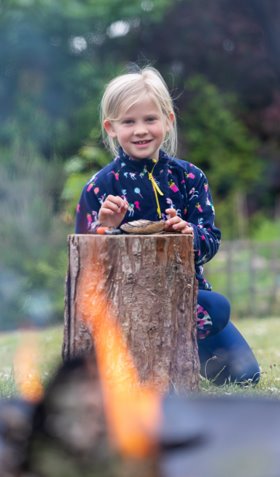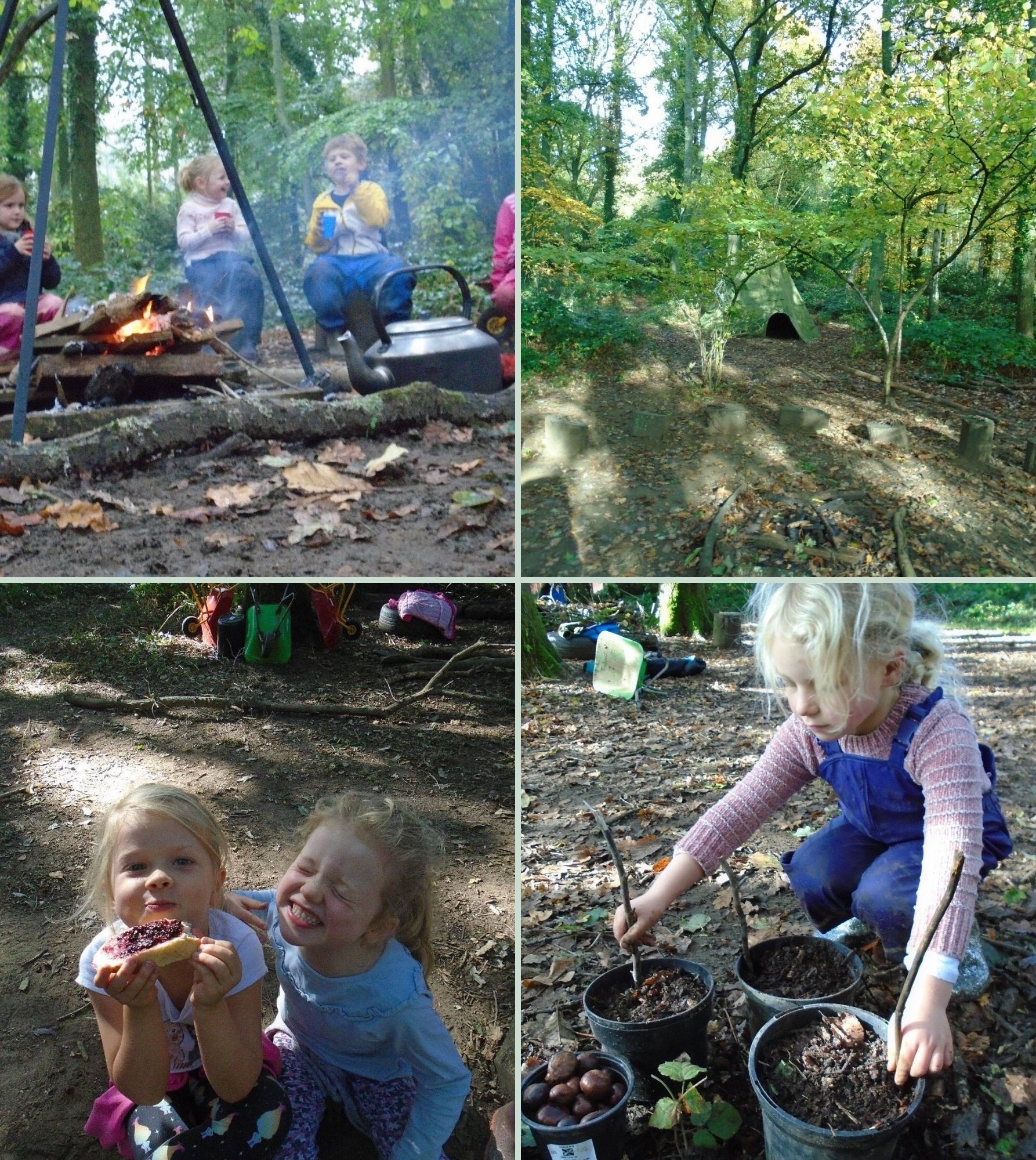Forest School and Nature Garden

Forest School offers children the opportunity to develop an inquisitive and positive relationship with the natural world as well as instilling a love of the great outdoors. We have our own nature garden and access to woodland at Milton Heath and the Nower aswell as nearby streams setting to bring learning to life with real tools and natural resources which will create an understanding of the balance of nature and the finite resources within it.
Weekly Forest School sessions are run all year round by Mrs Phillips, our qualified Forest School Leader.
Forest School is now offered to ALL children including KS2. Year R and KS1 Children will get a session every week. KS2 children will have a half-term block.
Children engage in motivating and achievable tasks and activities, at different times of the year and in almost all weathers! They work with tools, play, learn boundaries of behaviour; both physical and social, grow in confidence, self-esteem and motivation whilst developing an understanding of the natural world. Working through practical problems and challenges helps children build confidence in decision-making and evaluating risk whether this be designing a den, lighting a fire or making blackberry jam! Forest School is all about developing the children’s characteristics of effective learning which are so vital for future success.
The children benefit from a Nature Garden and pond area where they experience their outdoor learning.

What are the Characteristics of Effective Learning?
The ‘Characteristics of Effective Learning’ are ways in which the child engages with other people and their environment. These underpin all areas of a child’s learning and development.
| Playing and Exploring (Engagement) | Active Learning (Motivation) | Creating and Thinking Critically (Thinking) |
|
Finding out and exploring Showing curiosity about objects, events and people Using sense to explore the world around them Engaging in open-ended activity Showing particular interests Playing with what they know Pretending objects are things from their experience Representing their experiences in play Taking on a role in their play Acting out experiences with other people Being willing to 'have a go' Initiating activities Seeking challenge Showing a 'can do' attitude Taking a risk, engaging in new experiences and learning by trial and error |
Being involved and concentrating Maintaining focus on their activity for a period of time Showing high levels of energy, fascination Not easily distracted Paying attention to details Keeping on trying Persisting with activity when challenges occur Showing a belief more effort of a different approach will pay off Bouncing back after difficulties Enjoying achieving what they set out to do Showing satisfaction in meeting their own goals Being proud of how they accomplished something - not just the end result Enjoying meeting challenges for their own sake rather than external rewards or praise |
Having their own ideas Thinking of ideas Finding ways to solve problems Finding new ways to do things Making Links Making links and noticing patterns in their experience Making predictions Testing their ideas Developing ideas of grouping, sequences, cause and effect Choosing ways to do things Planning, making decisions and how to approach a task, solve a problem and reach a goal Checking how well their activities are going Changing strategy as needed Reviewing how well the approach worked |
